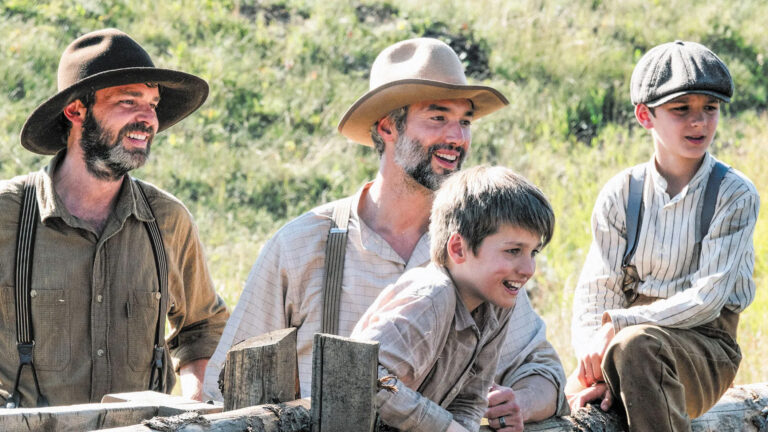My friend and I made a famous archaeological discovery.
I was on a study tour of Israel with the Institute of Holy Land Studies (now Jerusalem University College), after my sophomore year of college. This was followed by an excavation at Tell Qasile, in Tel Aviv, under the direction of Amihai Mazar of Hebrew University. It was my first dig. The excavation served as a field school in archaeology, in which students were introduced to the methodology of the discipline through hands-on excavation, lectures, pottery analysis, and more.
I was placed in an excavation square with Bob Mullins (who now teaches archaeology at Azusa Pacific University), who was also 20 years old at the time. Suddenly we uncovered the pillar base that stood in the main hall of the Philistine sanctuary. When we pointed out the find, Mazar exclaimed, “You have just discovered the Philistine temple!”
So began my lifelong love of archaeology.
It’s true that many Christians travel to Israel each year to tour the Holy Land. I recently saw an estimation that between 500,000 and 700,000 pilgrims tour the land each year. Few, however, participate in an excavation of a biblical site. With this in mind, here are four reasons why we dig.
1. Archaeology Is a Matter of Matter
Archaeology reminds us of the “earthiness” of the biblical accounts. As a field archaeologist at the site of Bethsaida, next to the Sea of Galilee, I oversaw the excavation area of the New Testament/Roman domestic quarter. Not only did we uncover some of the houses from that time, but we found lots of fishing gear, such as hooks and weights, inside the houses. This calls to mind the fact that Bethsaida was the hometown of at least three disciples: Andrew, Peter, and Philip (John 1:44). They were fishermen, and the excavation of Bethsaida helps us to understand the setting and realia of their lives. Some of the students wondered if perhaps we were digging in one of the houses of the disciples. My answer was simple: “If you find a mailbox with names Peter, Andrew, or Philip on it, then I think so!” As an aside, the name Bethsaida in Hebrew literally means, “house of the fisherman.” Though we never found a mailbox, we found many things that enlighten us about fishing during the New Testament period.
Archaeology helps demonstrate how the ancients lived. . . . It is literally ‘groundbreaking’ work.
So, archaeology provides us with the material cultural context of antiquity. It helps demonstrate how the ancients lived: how they grew their crops, how they built their structures, how they buried their dead, how they controlled their water sources, and other aspects of their physical culture. Archaeology is literally “groundbreaking” work.
2. Archaeology Is a Matter of History
We live in an age that loves to debunks history and the historical events the Bible portrays. For example, there has always been skepticism about whether widespread child sacrifice predominated in the ancient world, as portrayed in Scripture. While serving as a field archaeologist at the site of Carthage, we uncovered a child sacrificial cemetery in which thousands of children had been ritually sacrificed. Archaeology provides confirmation of the reality that biblical events did occur in history.
Biblical events really took place in space and time. As Paul argues in 1 Corinthians 15, if there has not been a historical resurrection of Jesus Christ from the dead, then “your faith is in vain” and “your faith is futile” (vv. 14, 17). If the dead aren’t resurrected in space and time, “Let us eat and drink, for tomorrow we die” (v. 32). History is essential to the Christian faith.
3. Archaeology Is a Matter of Interest
Excavation work also helps to pique the Christian’s interest. A digger is uncovering the past, discovering things that haven’t been seen for thousands of years. A hands-on or “dirty hands” approach highlights, again, the reality of the events and setting of the Bible. Archaeology helps make the Bible come to life. After digging, many of my students remark that they will never read the Bible the same way again.
4. Archaeology Is a Matter of Fellowship
Last, excavation work can build camaraderie among Christians.
Archaeology helps make the Bible come to life.
During one particular season at Bethsaida, I led a group of 35 seminarians for two weeks of digging. I often teased them that Bethsaida was cursed by Jesus as a city of unbelief and unrepentance (Luke 10:13). Yet here we were! Thirty-six Christians at Bethsaida digging up the remains of the houses of fisherman, some of whom would become disciples of Christ from a city of unbelief.
We live in the age of a pandemic that has affected almost every aspect of life, including archaeology. Normally during the summer months, the height of excavation work in Israel, dozens of excavations are underway. In summer 2020, however, I was aware of only one large-scale excavation in full operation. Yet this too shall pass. And when it does, we will be back in the field at full bore, gleaning material information regarding how the ancients lived their lives.
Free Book by TGC: For Graduates Starting College or Career
 Many young people are walking away from Christianity—for reasons ranging from the church’s stance on sexual morality, to its approach to science and the Bible, to its perceived silence on racial justice.
Many young people are walking away from Christianity—for reasons ranging from the church’s stance on sexual morality, to its approach to science and the Bible, to its perceived silence on racial justice.
TGC’s book Before You Lose Your Faith: Deconstructing Doubt in the Church is an infusion of hope, clarity, and wisdom in an age of mounting cynicism toward Christianity.
For anyone entering college or the workplace and looking for a timely reminder of why Christianity is good news in a skeptical age, make sure to get your FREE ebook Before You Lose Your Faith today!

































